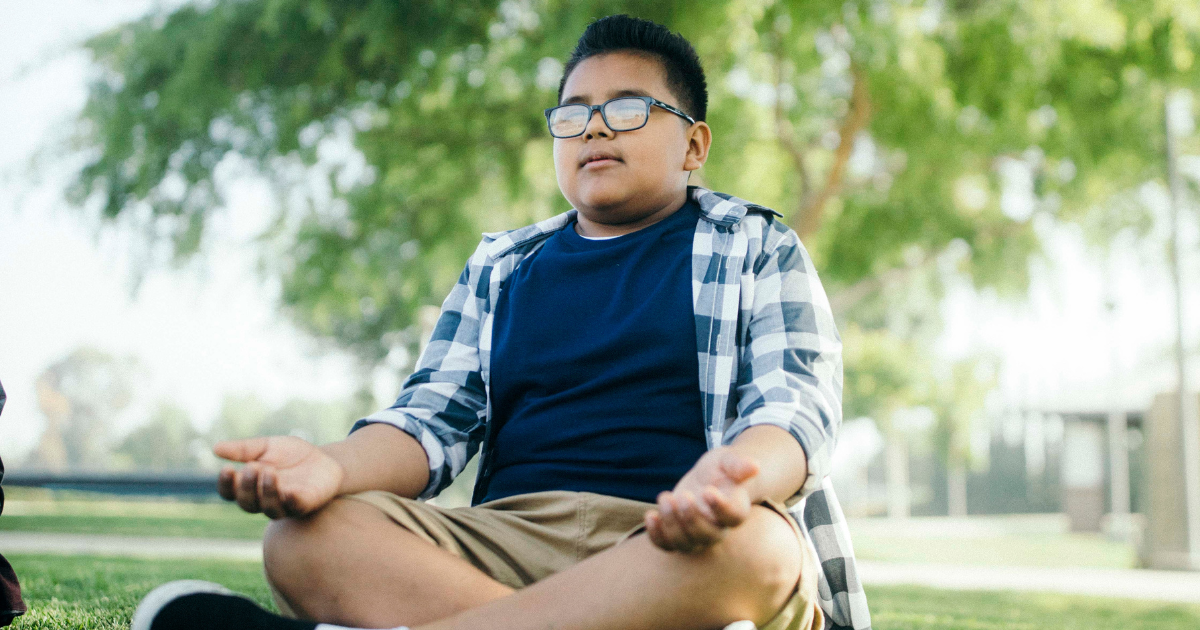
By Maya Rahman-Rios, Elevo Content Manager
We’re incredibly proud to support our students through a whole child lens every day. With May being Mental Health Awareness Month, we’re taking a moment to continue investing in our students’ mental well-being. Today’s student experience is marked by academic rigor, a wealth of extracurricular activities, and uncertainty about the future. It’s our goal to foster a culture of understanding, empathy, and resilience within our students to help them navigate their learning landscape. Let’s explore how we support student mental health at Elevo.
How Elevo Supports Student Mental Health
Designing Our Programs Around Mental Well-Being
A large part of our approach involves creating an environment of safety, trust, and belonging for all students. Our coaches are trained in social emotional and behavioral support strategies. Our programs and activities are designed to integrate CASEL competencies, our own Core Practices, and research-based best practices in learning and social emotional well-being. This allows us to lay a foundation of safety and trust with our students.
Training Our Coaches to Connect With Students
The coach/student relationship lies at the core of what we do. During their 40+ hours of annual training, our coaches are trained to interact with students in a way that changes their lives for the better. During each lesson, we also give coaches the opportunity to share their own experience. Many of our coaches come from the same local communities as the students they serve, and these shared experiences can result in stronger connections. Students then begin to see their coaches as a trusted adult on campus. It’s all about creating the best support system possible!
Fostering a Sense of Belonging
One of our highest priorities is for all students to feel seen, heard, and like their voice matters. We’ve carefully designed our programs around our 5 Core Practices to create a sense of belonging.
- Warm Welcome: Our Warm Welcome is an intentional time for coaches to connect with individual students. To help develop strong relationships, our coaches will greet each child and help them transition to new activities. This allows for co-regulation, ensuring the safety of all of our students and creating an environment where each child is connected and has the opportunity to share their voice. It’s all about making their time with us the best it can be!
- Community Circle: Inspired by some Indigenous cultures in North America, a Community Circle is a restorative, community-building practice that allows for equal participation from everyone involved. This structured, equitable routine promotes connection, understanding, and empathy. It also ensures equity of student voices, while helping students build the skills needed for successful social interactions.
- Team Agreement: As a collaborative discussion that describes the feelings and actions that will foster trust and safety within the group, Team Agreements are a crucial part of a successful Elevo session. A Team Agreement makes behavior expectations clear, resulting in a safe, predictable environment for students. This process allows us to intentionally cultivate positive emotions and strengthen our shared commitment to build a supportive community.
- Supported Transitions: Supported Transitions are designed to create predictability and routine during an otherwise unstructured and potentially chaotic time. Some of the students we serve have faced hardship in all its forms, so our goal is to acknowledge their challenges during transitions. What others may be quick to deem as bad behavior may be a complex trauma response. By establishing structure during these times, we can help reduce all students’ anxiety, fear, and maladaptive behaviors.
- Optimistic Closure: Optimistic Closures are the perfect way to end an engaging Elevo session. This practice highlights both the individual and shared experience at the end of an activity or day. Simply put, it’s science; Optimistic Closures help our students conceptualize and learn, while applying what they’ve just learned to their real lives. They also help our students project themselves into the future and use the skill they just practiced.
Final Thoughts
With Mental Health Awareness Month in full swing, it’s important that we turn our gaze toward student mental health and all the ways we can support the well-being of today’s learners. Our commitment to mental well-being is not just a month-long investment. We will continue to put forth as much effort as we can to ensure every student feels seen, heard, and valued throughout their education.




